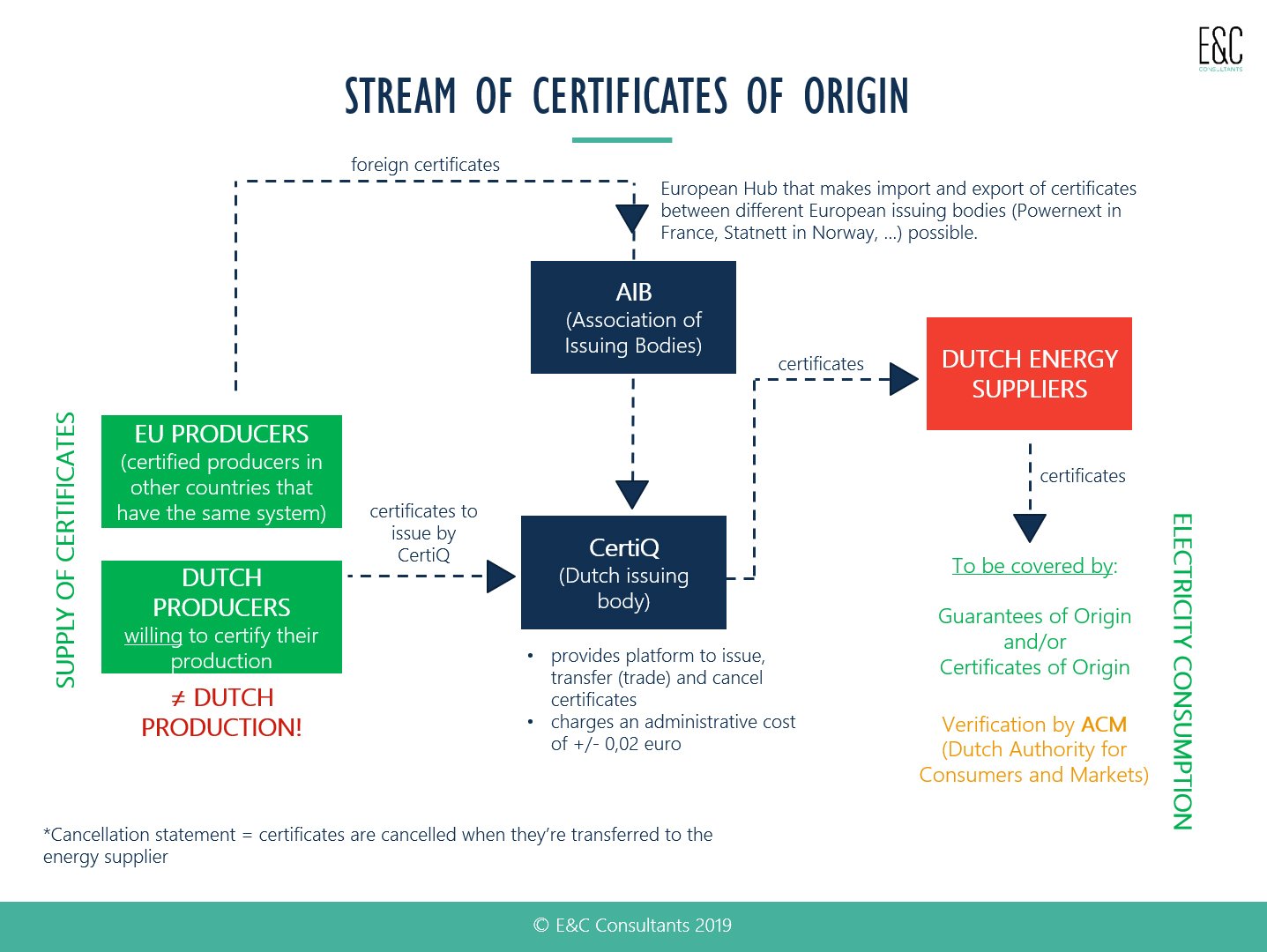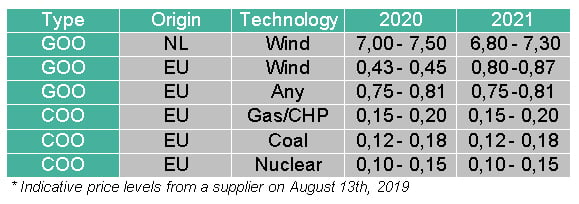Last week two of our consultants, Relinde and Lisa had a discussion with Ivo De Vries, CertiQ’s Relationship Manager. This organisation is the Dutch issuing body for Guarantees of Origin, but also for the more recent Certificates of Origin.
As of January 2020, Dutch electricity suppliers are obliged to prove the origin of all electricity they physically supply, so-called Full Disclosure. This goes a step further than sharing their production mix as this really concerns the specific volume supplied to a customer. The aim is to give consumers freedom of choice in the origin of the electricity they purchase. The transparency should stimulate companies to make choices that lead to less output of carbon emission, even within the grey category.
However, as electricity is transported over a common network and the electricity is mixed with different sources, it is not physically possible to purchase the electricity from a specific source without having to install a separate electricity network. For this reason, parallel markets exist to indicate the source of your electricity consumed.
The majority of our clients is familiar with Guarantees of Origin which prove the source of their green electricity. As of January 2020, Dutch electricity suppliers will also need to redeem or cancel Certificates of Origin. These certificates will prove the source of their clients’ grey electricity and will be traded in a bilateral market where energy suppliers will negotiate and buy certificates from traders or producers directly.
In the podcast below, we dive deeper into the impact of these Certificates of Origin on energy procurement such as the cost of these certificates, tighter choice of energy supplier, the wider choice in origin, less transparency in the add-ons of energy contracts, uncertainty on current contracts and the legal aspects. Apart from that, there’s the remark that this system might support fossil generation and that production does not equal consumption. There are two reasons for this: you can import these certificates from countries that also have this system such as Austria and producers are not obliged to certify their production.

What actions should you take as an industrial consumer?
We expect energy suppliers to contact you to understand which kind of certificates or guaranties would have your preference to purchase and to gain insight into your sustainable energy procurement strategy. Before the start of each delivery month, the CoOs or GoOs must be registered on the CertiQ account. At the end of each month a volume of certificates or guarantees of origin needs to redeemed equal to the volume of electricity consumption of the respective off taker.
To be clear, you do not need to cover the grey electricity you initially bought with CoOs for the part you’ll cover with GoOs. Below you can find indicative price levels.

As well, if you have an asset on your premises that produces electricity, you could apply to issue CoOs.
Enjoy listening to our podcast and feel free to reach out in case you’d have any questions or concerns and I invite you to read Benedict's additional comment.